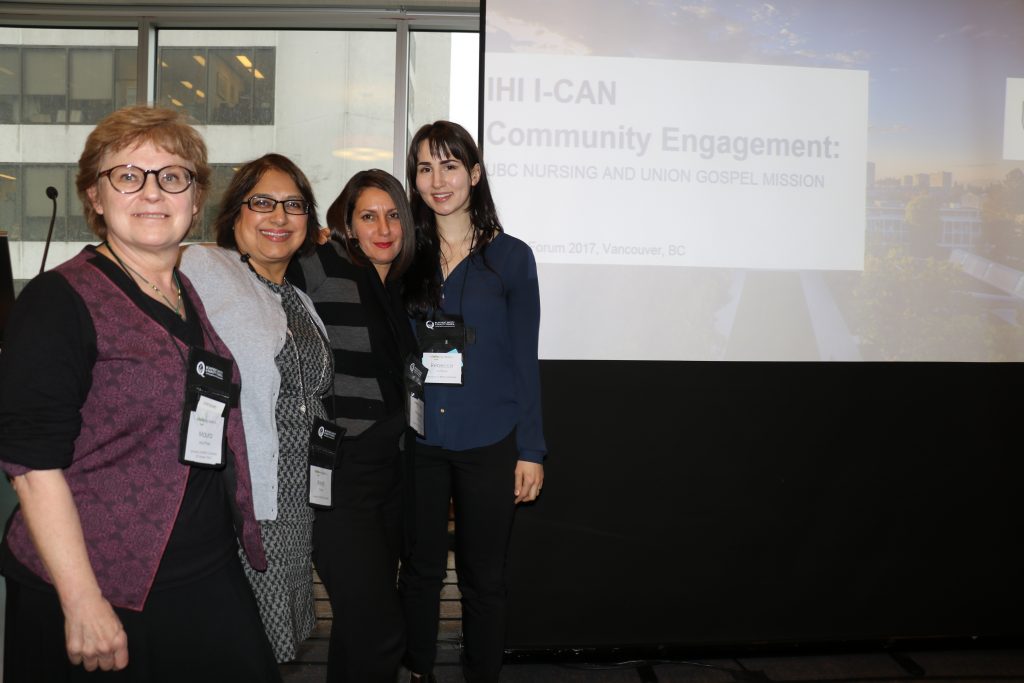BY ERICA BENSON
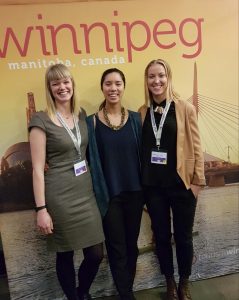
Skye Maitland, Erica Benson, Whitney Radforth
Representing University of British Columbia as a Canadian Nursing Students Association (CNSA) Associate Delegate, I flew to Winnipeg with two colleagues, Skye Maitland and Whitney Radforth, in January 2017.
The CNSA is “the national voice of Canadian nursing students, whose aim is to increase the legal, ethical, professional and educational aspects which are integral to nursing”. The conference certainly reflected this mandate as I surrounded myself with dedicated, outspoken and insightful peers from across the nation and attended inspiring workshops. Here are four things, among many, I learned over four days steeped in the CNSA National Conference.
1) NCLEX?
At the beginning of my semester, I remembered hearing my professors say the NCLEX was imperfect, at best. What did that even mean?? The CNSA filled me in. Since 2015, the Canadian Registered Nurse Regulators adopted the NCLEX entry to practice exam for Canadian Nurses, abolishing the previous Canadian Registered Nurses Exam. The result? National first-time pass rates dropped from 87% to 69.7%. Canadian students are taking an American exam, based on American content and suffering for it. Schools are taking precious class time to prep for an exam that isn’t ready for Canadian students. What is being lost? In a campaign letter writing session, delegates from across the nation sealed envelopes in order to send a loud message to provincial and federal regulators. The exam must be remediated to accommodate Canadian nursing students and it must happen soon! Join the movement.
2) Hers, his, theirs: transgender patient introductions
Transgender issues are not about preference, it’s about identity. It’s about waking up in a body you do not love, do not feel comfortable in and then constantly be referred to as someone you don’t feel like. When working with transgender individuals there are simple extensions you can make to ensure the interaction comes from a trauma and violence informed perspective. Instead of asking, “What is your preferred pronoun?” instead ask, “What is your pronoun?” Using the word preferred implies the individual has choice. Secondly, using terms such as “tranny” or “transvestite” are outdated and are not taken kindly. Lastly, remember it’s about client-centered care. How can we create a safe space and make caring for this client the best experience for them?
3) Policy: The Interim Federal Health Program
Policy matters. Sure, it may seem dry and far off…something that bureaucrats do in an office somewhere, battling over two words in a motion. But what is a motion? What if those two words meant the difference between someone in Canada accessing medication after a heart attack? Policy matters. The legacy of the Interim Health Program and subsequent protest demonstrates the importance of voicing political disagreement and flexing solidarity to advocate for change. Depending on who is in power will determine the equity of access to health care for different levels of immigrant status, which brings in the powerful question: Is access to health care a human right? If a refugee claimant from Ghana walks across the Emerson-United States border through a blustery night in December in knee-deep snow wearing jeans, losing his fingers to frostbite, should we then send him a bill for the hospital costs? These important ethical questions influence policy and policy affects every nurse and patient in Canada.
4) Comfort Zone
Imagine you have just arrived at a conference and you’re drinking a morning coffee, flipping through the program plotting out your day. What workshops are you drawn to? The titles where you know a little about? The ones that seem interesting because they resonate? What about the ones you know absolutely nothing about. I challenge you to leave that area of familiarity and comfort. Instead, I suggest you dive into the workshop that makes you feel uncomfortable. There, you may be pushed emotionally, spiritually or physically, however I guarantee you will learn something. You may even be inspired by something you did not know existed. It was at one of these workshops that I learned about female genital cutting, a topic that pushed my comfort levels, touched me deeply and increased my understanding of the practice. As a health care provider in 2017 and beyond, we must be prepared for anything and anyone, and that includes individuals from all cultures and backgrounds.
 Follow
Follow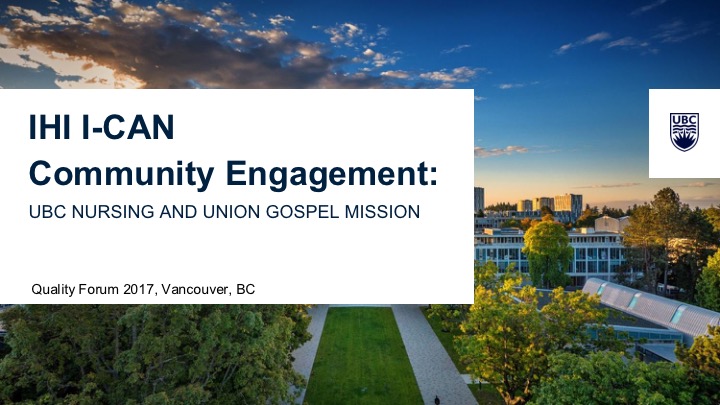
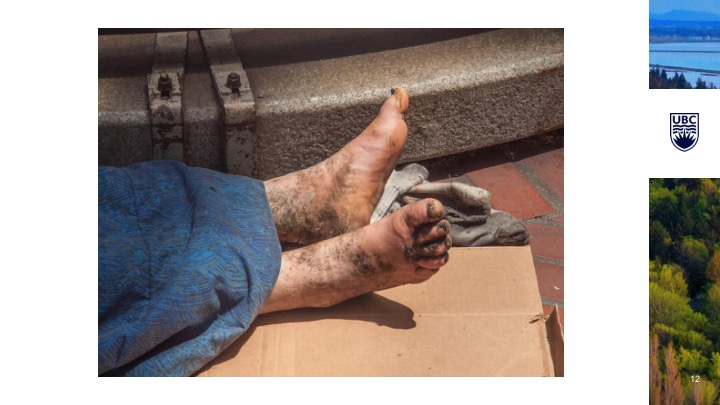
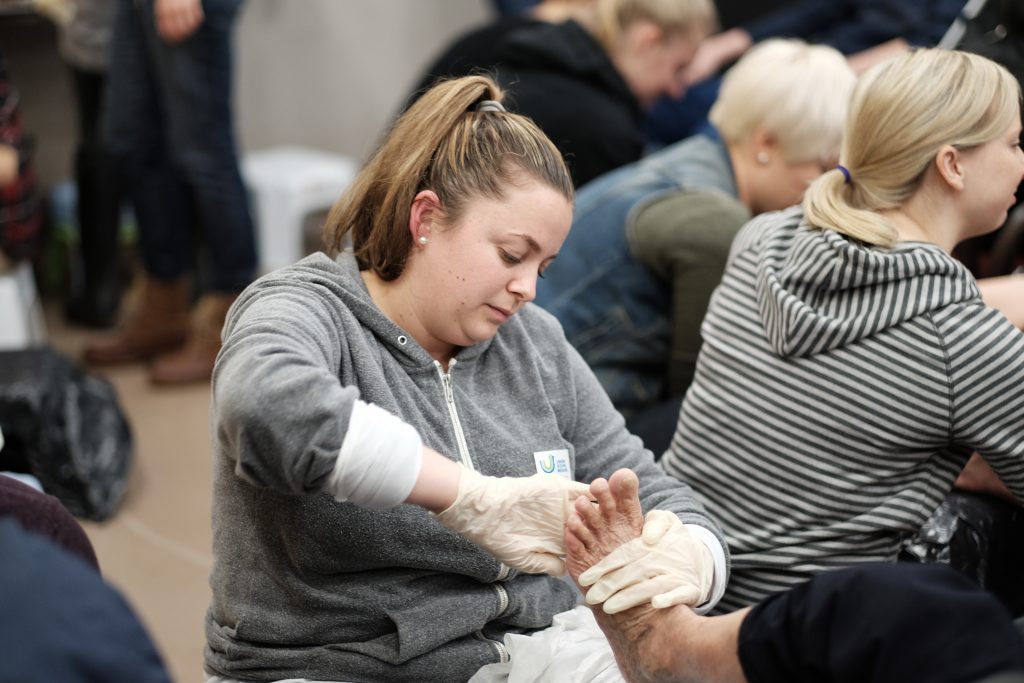 Our foot soak service offered clients accessing the lunch service to soak, clean and have their feet massaged and dried thoroughly, and to get a new pair of socks; a small action that goes a really long way in Vancouver’s damp weather. During this time, the UBC student nurses were able to engage with clients, assess their foot health, talk about their general health and their concerns and make a referral to primary health care services in the community if desired and indicated. Simultaneously, students were able to get to know some of the real people living in this community and were able to gain some understanding of how social positions intersect as the social determinants of health can impact an individual, a community and populations health and well-being. Every six weeks students working through their community health rotations would cycle through and participate in hosting the foot soak clinics.
Our foot soak service offered clients accessing the lunch service to soak, clean and have their feet massaged and dried thoroughly, and to get a new pair of socks; a small action that goes a really long way in Vancouver’s damp weather. During this time, the UBC student nurses were able to engage with clients, assess their foot health, talk about their general health and their concerns and make a referral to primary health care services in the community if desired and indicated. Simultaneously, students were able to get to know some of the real people living in this community and were able to gain some understanding of how social positions intersect as the social determinants of health can impact an individual, a community and populations health and well-being. Every six weeks students working through their community health rotations would cycle through and participate in hosting the foot soak clinics.